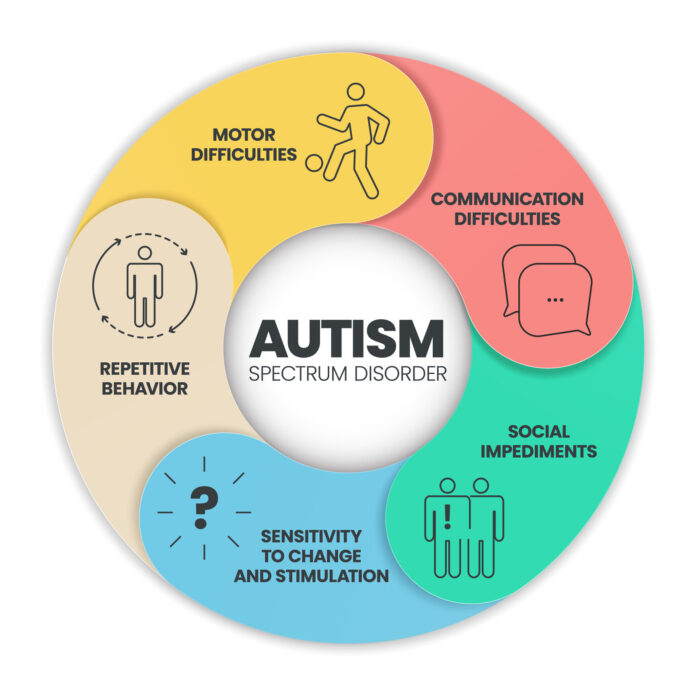Autism is often associated with early childhood, but an increasing number of adults are discovering that they may be on the autism spectrum. Many individuals go through life without a diagnosis, only to realize in adulthood that their experiences, struggles, and ways of thinking align with characteristics of Autism Spectrum Disorder (ASD). This realization can be both liberating and overwhelming.
If you suspect you or someone you care about may be on the spectrum, Autism Testing can provide clarity and a pathway toward better self-understanding, professional support, and improved quality of life.
Why Adults Seek Autism Evaluations
There are many reasons an adult may choose to pursue an autism evaluation. Some grew up in a time when awareness of autism was limited, particularly for those with high-functioning or less “visible” traits. Others may have been misdiagnosed with anxiety, depression, or ADHD, only to discover that these issues stem from unrecognized autism.
Adults often seek autism testing because of:
- Persistent social difficulties
- Challenges maintaining employment or relationships
- Overwhelming sensory sensitivities
- Struggles with change or executive functioning
- A long-standing feeling of being “different” or misunderstood
- Family history or children recently diagnosed with autism
These concerns become more prominent as life responsibilities increase and interpersonal demands intensify.
Common Signs of Undiagnosed Autism in Adults
Identifying autism in adults can be challenging, especially if the individual has developed coping mechanisms or masking behaviors. However, there are some telltale signs that may point toward the need for a formal assessment.
- Difficulty understanding social cues and body language
- Preference for routines and discomfort with unexpected changes
- Deep, focused interest in specific topics or hobbies
- Emotional regulation challenges or sensory overload
- Feeling exhausted after social interaction
- A history of being misunderstood in personal or professional settings
- Difficulty with time management, organization, or multitasking
These symptoms, when consistent and impactful, may suggest the presence of ASD traits that have gone unrecognized for years.
What to Expect from Adult Autism Testing
Autism testing for adults is a structured yet personalized process. It typically involves a combination of interviews, questionnaires, and observations tailored to adult life experiences.
Initial Consultation
The process begins with an intake session to review your personal history, behavioral concerns, and specific goals for seeking a diagnosis. This may include reviewing childhood behaviors, developmental milestones, and social history.
Diagnostic Interviews
Professionals often use structured interviews such as the Autism Diagnostic Interview-Revised (ADI-R) or the Developmental, Dimensional and Diagnostic Interview (3Di) to gather insights into communication styles, sensory sensitivities, and social patterns.
Standardized Assessments
You may complete self-assessment tools such as the Autism Spectrum Quotient (AQ), Ritvo Autism Asperger Diagnostic Scale (RAADS-R), or Empathy Quotient (EQ). These provide a quantitative view of potential autistic traits.
Observation and Functional Assessments
Some evaluations include real-time observation in structured social or problem-solving situations to analyze behaviors and responses.
Feedback and Recommendations
After all assessments are complete, you’ll receive a detailed report and consultation session outlining the diagnosis (if applicable), along with recommendations for therapy, workplace support, or lifestyle adjustments.
Benefits of a Formal Autism Diagnosis in Adulthood
Some adults hesitate to seek a diagnosis, fearing stigma or the belief that it’s “too late” to matter. However, receiving a formal autism diagnosis in adulthood offers multiple benefits:
- Improved Self-Understanding
Understanding how your brain works can bring relief and validation, especially after years of confusion or misdiagnosis. - Access to Professional Support
With a diagnosis, you can access therapies like cognitive behavioral therapy (CBT), occupational therapy, or social coaching tailored to autistic adults. - Workplace Accommodations
Knowing your diagnosis allows you to request accommodations under disability laws that can reduce stress and improve performance at work. - Improved Relationships
Better self-awareness can help you communicate your needs to friends, family, or partners and build more authentic relationships. - Community and Connection
Many diagnosed adults find community in autism support groups where shared experiences create a sense of belonging.
FAQs About Adult Autism Testing
Is autism testing for adults accurate?
Yes. While more nuanced than testing in children, adult autism assessments use validated tools and interviews to ensure reliable outcomes.
Can I be autistic even if I was successful in school or work?
Absolutely. Many autistic adults excel academically or professionally, especially when their interests align with their job or studies. However, social and emotional challenges may still exist.
How long does the testing process take?
The process varies but typically includes multiple sessions over several weeks, including interviews, assessments, and a feedback session.
Is a diagnosis necessary if I already suspect I’m autistic?
A diagnosis isn’t required, but it can provide validation, unlock resources, and help others better understand and support you.
Will I need therapy after being diagnosed?
Not necessarily, but therapy can be helpful in learning coping strategies, improving communication, and managing co-occurring conditions like anxiety or depression.
Moving Forward: Embrace Understanding and Growth
A diagnosis is not about putting yourself in a box—it’s about breaking free from confusion and self-doubt. If you’ve struggled with fitting in, processing emotions, or managing sensory input, autism testing may give you the answers you’ve been searching for.
You deserve clarity, not just for the challenges you’ve faced, but for the strengths and perspectives that make you unique. Comprehensive autism testing can illuminate your journey and help you build a more authentic, fulfilling life.
Whether you’re seeking workplace support, stronger relationships, or personal growth, professional testing offers the insight you need to move forward with confidence. Don’t let age or uncertainty hold you back—the right time for understanding yourself is always now.
